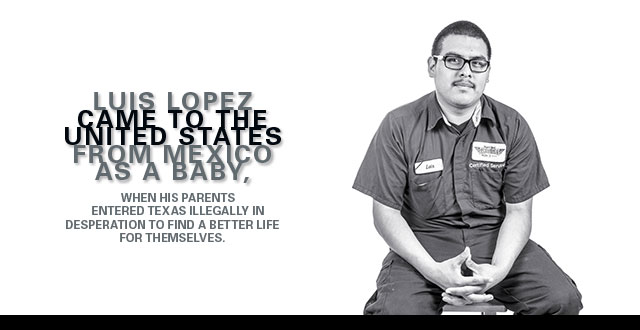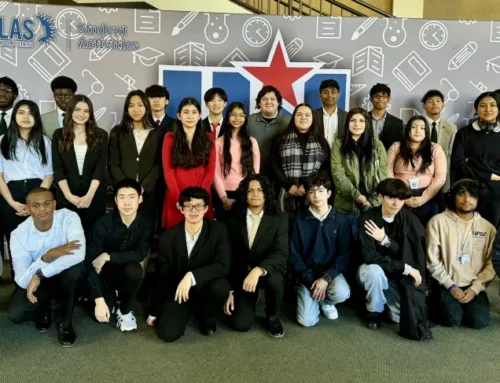Growing up, earning good grades, pursuing a talent and gaining college acceptance is tough, but imagine doing so in the face of abject poverty or an incurable disability or while you are the primary caretaker for a dying parent and your younger siblings. Hellish circumstances can become an excuse for teens to escape down a destructive, pain-numbing path. For a few neighborhood seniors who will graduate this month, however, hardship is reason to strive for a better future. Their determination, support from teachers and administrators, and, perhaps, the iron-will derived from a fight for survival has driven them to remarkable success.
Ramirez always has been that way, growing up with a single mom and younger siblings. But since her mom became ill three years ago, the high school student plays an even bigger role in ensuring that her family stays on track.
Every morning, she drives her younger siblings, 11 and 13, to middle school. Then she drives her 17-year-old brother to school at Townview and drops her cousin off at the DART train before 8 a.m. Then she’s off to school herself.
Ramirez piled on her high school credits so that this semester, she only needed three classes to graduate. Instead of hanging out or working in the afternoons, she typically is running errands, driving grandparents to doctor’s appointments, babysitting her cousin’s toddler.
“My mom always tells me I don’t have to do it, but if I see someone that needs help, I just do it,” she says. “If I say ‘no’ to somebody, I feel bad.”
Ramirez says her dad went to prison when she was 2 years old. Her mom, who is now only 34, worked as many as three jobs to keep the family afloat. One way she made do was a gig with a property management company occupying vacant rental houses in exchange for free rent, but that meant moving frequently. The children rarely stayed in the same school for more than one semester.
Things became more stable when her mom remarried, but by then, Ramirez already was a little adult.
When she was 12 or 13, Ramirez started cutting herself as a way to relieve emotional pain. Her younger sister found out and told her parents, who sent Ramirez for a week of inpatient care at Hickory Trail Hospital in DeSoto, followed by a year of counseling.
“Now I talk to people who are cutting,” she says. “It was an escape from reality. It took away the pain for a little bit.”
In 2007, her mom had gallbladder surgery that went wrong. She had internal bleeding and a hematoma that was pushing on her liver. But even after those problems were corrected, she still was sick and later was diagnosed with Lupus.
Even though her mom can’t work, Ramirez says, she earns money baking and decorating cakes at home.
“There are times when she can’t walk,” Ramirez says. “But she still wants to do something.”
In addition to cooking, cleaning and shuttling family members anywhere they need to go, Ramirez is a great student, says Sunset counselor Angela Williams-McGill.
Ramirez has such an overwhelming sense of responsibility for her family that she originally had planned to forgo college and start working right after high school so that she could contribute to the household. But her mom, a high-school dropout who started having children in her teens, encouraged her to apply.
Now Ramirez is considering Texas Woman’s University and the University of North Texas at Dallas, which offered her a $30,000 scholarship. She wants to be a nurse, psychologist or social worker, she says.
Lopez’s two younger siblings were born in Texas, but for years, he lived in almost constant fear of deportation.
As a sophomore, the now-18-year-old Adamson High School student took a job at an east Oak Cliff pizza shop, where the owners paid him about $4 an hour in cash. He couldn’t get a drivers license, and he started losing hope.
“I would get depressed about it sometimes because I didn’t think I would be able to go to college, and that’s something that I really wanted to do,” he says. “I stopped trying because I thought that I wouldn’t be able to get a job or anything.”
Besides that, he doesn’t know anyone in Mexico, so if he had been deported, “I would be lost,” he says.
An estimated 65,000 students graduating from American high schools every year were brought by parents or guardians into the country illegally as young children. Once their high-school careers are over, their options are limited, especially if they lack ties to their home countries.
Lopez might’ve been one of them, washing dishes, taking fast-food orders or working as a meat packer rather than pursuing college and a career. But last year, he was awarded a two-year student visa, which allows him to work.
It couldn’t have happened to a more deserving kid, says Timmy Martin, automotive technology teacher at Adamson.
Lopez now has early release for his job as a porter at Randall Reed Park Cities Ford Lincoln. And this summer, he will enroll in a two-year program at Brookhaven College wherein he will earn an associates degree and become a Ford certified technician.
“He’s a kid that’s just really gung-ho about his future, and he’s making it happen for himself,” Martin says.
Lopez says his mom, who suffered poverty and abuse at home in Mexico, encourages him to pursue education and a career. He is hopeful that someday he can become a citizen of the country that is his home through the Development, Relief, and Education for Alien Minors Act, the D.R.E.A.M. Act, which has failed to pass through Congress since it was first introduced in 2001.
Until then, he plans to take his career as far as it can go.
“My dream is to own my own shop one day,” he says.







